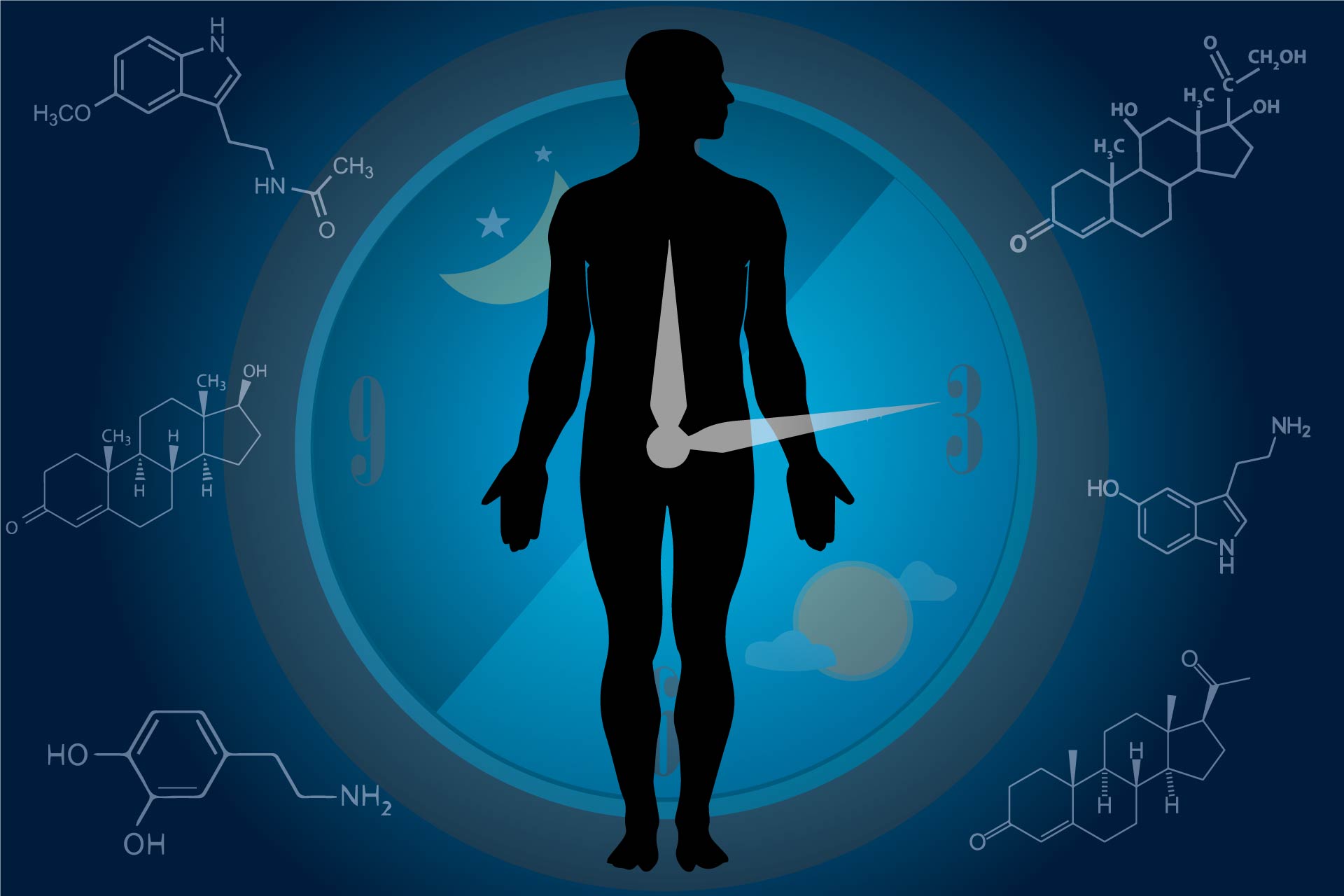What is already known on this topic
Recent studies have shown that gut microbes are linked to the host circadian rhythms —oscillations in behavioral and biological processes that follow a 24-hour cycle. During the day, microbiota oscillations in the gut are partly driven by the time of feeding, but a high-fat diet can lead to a loss of such oscillations.
What this research adds
Working in mice, researchers found that the expression of a peptide called Reg3γ, which has antimicrobial activity against some types of bacteria, is not controlled by the host’s circadian clock but by specific, oscillating bacteria. Compared to a regular diet, a high-fat diet altered the mice’s gut microbiota community and reduced the oscillations of microbes that positively correlate with the expression of Reg3γ. Mice lacking Reg3γ that were fed a regular diet showed worse glucose tolerance than mice with Reg3γ, whereas a high-fat diet decreased the rates of glucose clearance from the blood regardless of whether the mice had Reg3γ.
Conclusions
The findings suggest that biological rhythms are influenced by the diet as well as by signals between the host and its microbiota. Restoring the gut microbiota’s capacity to sense dietary signals mediated by specific host factors may improve metabolic problems.
Regularly eating too much fat can result in problems that put a person at greater risk of getting coronary heart disease, stroke and other conditions. Now, researchers have found that a high-fat diet can lead to metabolic problems by disrupting some of the host’s immune factors as well as gut microbial oscillations.
The findings, published in Cell Host & Microbe, suggest that biological rhythms are influenced by the diet as well as by signals between the host and its microbiota. Restoring the gut microbiota’s capacity to sense dietary signals mediated by specific host factors may improve metabolic problems, the researchers say.
Recent studies have shown that gut microbes are linked to the host circadian rhythms —oscillations in behavioral and biological processes that follow a 24-hour cycle and that are influenced by a variety of factors, including the environment. During the day, microbiota oscillations in the gut are partly driven by the time of feeding, but a high-fat diet can lead to a loss of such oscillations.
“Although host factors drive microbial rhythms, microbes provide feedback that influence host diurnal patterns both locally and peripherally,” the researchers say. For example, depleting gut microbes with antibiotics impairs the diurnal gut expression of a peptide called Reg3γ, an immune factor that has antimicrobial activity against some types of bacteria. Mice lacking Reg3γ show altered diurnal rhythms of microbial abundance in the colon. However, how diurnal expression of Reg3γ helps to maintain normal gut microbial oscillations is unclear.
To better understand the interplay between diet, the microbiota, and host factors driving microbial oscillations in the gut, Vanessa Leone at the University of Wisconsin-Madison and her colleagues looked at whether signals derived from gut bacteria can drive diurnal expression of Reg3γ in mice.
Oscillating bacteria
The researchers found that the diurnal expression of Reg3γ was not controlled by the host’s circadian clock but by the presence of oscillating bacteria, including some bacteria whose abundance is influenced by the host’s diet.
About 15% of microbes present in the ileum, the final section of the small intestine, oscillated in mice that were fed a regular chow. However, this proportion was dramatically reduced in mice fed a high-fat diet. The researchers observed 81 oscillating types of gut bacteria in mice fed a regular chow, but only 14 in mice fed a high-fat diet.
A high-fat diet promoted the expansion of Clostridiaceae and Peptostreptococcaceae, both of which negatively correlate with Reg3γ expression. Instead, a regular diet promoted the expansion of Lactobacillus bacteria, which are positively correlated with the expression of Reg3γ.
High-fat diet
Further experiments showed that mice lacking Reg3γ that were fed a high-fat diet gained 12% more body weight compared to control mice. Mice lacking Reg3γ that were fed a regular diet showed worse glucose tolerance than mice with Reg3γ, whereas a high-fat diet decreased the rates of glucose clearance from the blood regardless of whether the mice had Reg3γ.
“These data suggest that Reg3γ does not alter [high-fat] diet-induced obesity outcomes but may play a functional role in how diet impacts glucose tolerance,” the researchers say. “Our work supports the idea that diet overwhelms genetics in shaping microbial [small intestine] membership, where [a high-fat diet] elicits a greater influence than Reg3γ genetic deletion.”
The findings also suggest that a high-fat diet may reduce the benefits of certain probiotics, whose effects are mediated through interactions with Reg3γ, the authors say. To boost the effectiveness of probiotic treatments, they add, clinicians should consider dietary planning and meal timing. “The knowledge gained here provides a framework for the identification of interventions that restore diurnal host-microbe interactions to alleviate metabolic diseases associated with [a high-fat] diet.”









